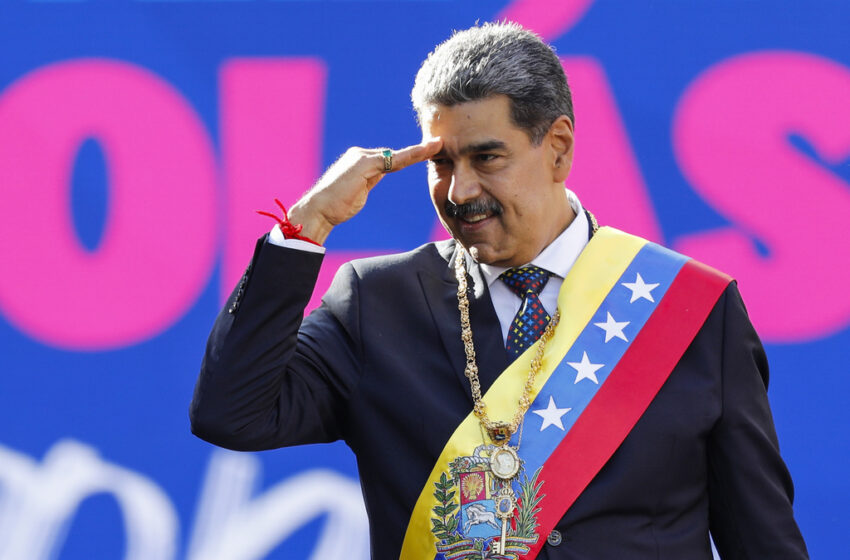Nicolás Maduro: Why the U.S. is offering a $50 Million bounty for the Venezuelan President

Venezuelan President, Nicolás Maduro salutes supporters on his inauguration day for a third term at Miraflores presidential palace in Caracas, Venezuela, Jan. 10, 2025. (AP Photo/Cristian Hernandez)
The U.S. government has escalated tensions by doubling its reward to $50 million for information leading to the arrest of Venezuelan President Nicolás Maduro. This dramatic move comes amid severe drug trafficking charges and allegations of narco-terrorism tied to Maduro and allied criminal syndicates.
Criminal Allegations and Historical Bounty Timeline
Maduro was first indicted by U.S. prosecutors in 2020 on multiple criminal charges, including narco-terrorism and conspiracy to import cocaine. At that time, a $15 million reward was offered for information leading to his arrest. In January 2025, as Maduro began his controversial third presidential term, that bounty was raised to $25 million to reflect the “gravity of his crimes.”
On August 7, 2025, Attorney General Pam Bondi announced a further increase to $50 million, calling Nicolás Maduro “one of the world’s largest narco-traffickers” with dangerous alliances.
Alleged Cartel Connections and Seized Assets
U.S. authorities accuse Maduro of collaborating with criminal organizations such as Tren de Aragua, the Sinaloa Cartel, and Cartel de los Soles to flood the U.S. with fentanyl-laced cocaine, posing a national security threat.
The Department of Justice reports seizures exceeding $700 million in assets associated with Maduro, including two private jets and nine vehicles. Additionally, approximately 30 tons of cocaine linked to Nicolás Maduro and his associates have been confiscated, nearly seven tons traced directly to him.
READ ALSO
Habeas Corpus: How Trump’s least favourite part of the Constitution got deleted
What is the Presidential Fitness Test? Inside Trump’s new executive order
Official U.S. Position vs. Venezuela’s Response
Attorney General Bondi emphasized, “Under President Trump’s leadership, Maduro will not escape justice,” signaling a continued U.S. crackdown on narcotics-fueled governance.
Venezuelan Foreign Minister Yván Gil denounced the reward publicly, calling it “pathetic” and a distraction from U.S. domestic controversies, including the Jeffrey Epstein scandal. He labeled the announcement a “crude political propaganda operation.”
What’s at Stake: International Justice and Political Implications
This stiff increase in the arrest bounty reflects broader geopolitical tensions and prioritizes drug-related security concerns on America’s agenda. Still, Maduro remains firmly in power in Venezuela, defying international pressure and recognition by Western countries following disputed elections.
The U.S. continues to pursue legal and diplomatic routes to challenge Maduro’s authority, aiming to disrupt narco-trafficking networks and support democratic restoration.

